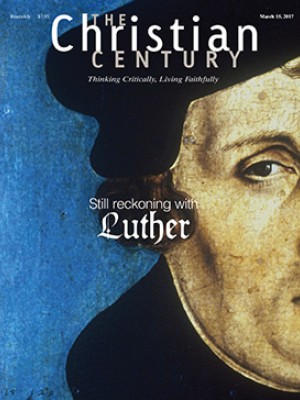The spiritual practice of politics
Be an activist. But approach it with intention, care, and clear limits.
The past month has seen the new presidential administration off to a chaotic and alarming start. It has also witnessed the emergence of a broad-based movement to stand up to a host of White House actions—not just the administration’s policy agenda but its efforts to blur reality, delegitimize criticism and the press, and undermine the health of democratic institutions.
The day after the inauguration, millions marched in protest. When an executive order targeted people traveling to the United States from majority-Muslim countries, thousands headed to the nation’s airports to defend them. Members of Congress are being hounded by constituents demanding that they protect health care coverage and provide meaningful oversight of the executive branch. Back at their offices, representatives are taking an endless stream of constituent calls. Activist groups are being organized to offer strategic support and other resources.
Read our latest issue or browse back issues.
Will this movement have a positive and lasting influence? To do so it will need to maintain discipline and focus on effective forms of activism, not just cathartic ones, and it will need to remain a big tent—with room for staunch leftists, regretful Trump voters, and everyone in between. That’s a familiar tension for activist movements, one writ quite large in this case.
A movement of long-term resistance on multiple fronts also presents an acute challenge to its individual participants. How do we balance the rare urgency of our political moment with the ordinary concerns of daily life?
Andrew Sullivan recently wrote that it no longer seems possible to do what recently seemed natural: ignore politics a lot of the time. Leaving aside the fact that ignoring politics has never been an option for undocumented immigrants, people of color, or religious minorities, Sullivan’s comment captures the current challenge: how to find useful ways to engage in politics without being overwhelmed by it.
Christians have something to offer here: the notion of spiritual disciplines, defined and finite. Personal activism—attending a rally or meeting, calling a representative, making a donation—can be approached with intention, care, and clear limits. The goal is not to compartmentalize politics, a luxury that vulnerable people do not have, but to prioritize the sort of action that is effective and sustainable—action that connects us with achievable goals and the people who share them.
A disciplined political practice is a spiritual practice, rooted in deep conviction. It is rooted in love of place—and in love of neighbor. The discipline of sustained political engagement has always been crucial to democracy. Now, in a time of crisis, it will truly be tested.
A version of this article appears in the March 15 print edition under the title “Politics as daily practice.”





